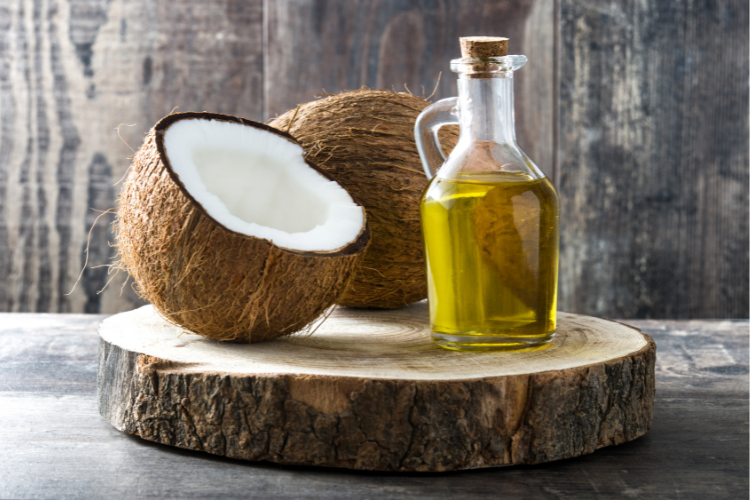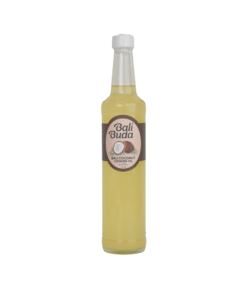Coconut oil has been enjoying the limelight in recent years, and for good reason. This versatile oil, derived from the meat of coconuts, is a true superstar in the world of natural health and wellness. From cooking to beauty and even as a dietary supplement,
coconut oil has a wide range of applications. In this comprehensive guide, we’ll explore what coconut oil is, the different types available, how to use it in your daily life, and the numerous health benefits of coconut oil.
What Is Coconut Oil?
Coconut oil is extracted from the meat of mature coconuts harvested from the coconut palm tree (Cocos nucifera). It is a rich source of saturated fats, primarily medium-chain triglycerides (MCTs). These MCTs, particularly lauric acid, make up a significant portion of the fat content and are responsible for many of the oil’s health benefits.
Types of Coconut Oils
Before we delve into the multitude of uses and health benefits, let’s talk about the different types of coconut oil you might come across:
Refined Coconut Oil
Refined coconut oil, often labeled as “RBD” (Refined, Bleached, and Deodorized) coconut oil, undergoes a refining process that removes impurities, flavor, and aroma. While it may have a higher smoke point, making it suitable for high-heat cooking, it loses some of the coconut flavor and may also have fewer health benefits due to the refining process.
Unrefined (Virgin) Coconut Oil
Unrefined or virgin coconut oil is extracted from fresh coconut meat without undergoing refining. It retains the distinct coconut aroma and flavor. This type is preferred for uses where the coconut flavor is desirable, such as in baking, smoothies, and some savory dishes.
Extra Virgin Coconut Oil
Extra virgin coconut oil is a step above virgin coconut oil. It’s made from the first pressing of fresh coconut meat, resulting in a stronger coconut flavor and aroma. It’s often considered the highest quality coconut oil and is ideal for dishes where you want a pronounced coconut taste.
Cold-Pressed Coconut Oil
Cold-pressed coconut oil, often referred to as “virgin” or “extra-virgin” coconut oil, is a type of unrefined coconut oil. It is produced by a method that doesn’t involve high heat or chemicals, making it one of the purest and minimally processed forms of coconut oil available.
Cold-pressed coconut oil is made from fresh coconut meat, which is grated and then mechanically pressed to extract the oil. The term “cold-pressed” signifies that no external heat is applied during the extraction process. Instead, the oil is extracted at a temperature that’s typically below 120 degrees Fahrenheit (49 degrees Celsius). This gentle extraction method helps preserve the oil’s natural flavor, aroma, and nutritional qualities.
Fractionated Coconut Oil
Fractionated coconut oil is primarily composed of medium-chain triglycerides (MCTs), making it liquid at room temperature. It lacks the solid form of regular coconut oil. Fractionated coconut oil is commonly used in skincare and massage oils due to its lightweight, non-greasy texture.
Now that we’ve clarified the types, let’s dive into the exciting ways you can incorporate coconut oil into your life.
How To Use Coconut Oil?
Cooking & Baking
Coconut oil is a versatile cooking oil that can withstand high temperatures, thanks to its high smoke point. It adds a delightful coconut flavor to dishes. Use it for sautéing, frying, roasting vegetables, and even as a replacement for butter in baking recipes. It’s also a popular choice for making popcorn!
Smoothies and Beverages
Enhance your morning smoothie with a spoonful of coconut oil. It adds creaminess and a subtle coconut flavor. You can also use it to make bulletproof coffee by blending it with coffee and grass-fed butter or ghee for a satisfying energy boost.
Skin and Hair Care
Coconut oil is a beloved beauty ingredient. It works as a natural moisturizer for your skin, leaving it soft and hydrated. Apply it as a body lotion, lip balm, or massage oil. It’s also fantastic for removing makeup.
For your hair, use coconut oil as a deep conditioner or hair mask. Apply it to your hair, leave it on for a while (even overnight), and then wash it out for luscious, shiny locks.
Oil Pulling
Oil pulling is an ancient Ayurvedic practice that involves swishing oil around your mouth for oral health benefits. Coconut oil is a popular choice for this due to its antimicrobial properties. Swish a tablespoon of coconut oil in your mouth for 10-20 minutes before spitting it out. It can help promote better oral hygiene and fresher breath.
DIY Beauty Products
Coconut oil is a key ingredient in many homemade beauty products. You can use it to make your own body scrubs, face masks, and even natural deodorant. Combine it with other natural ingredients like sugar, raw honey, or essential oils for personalized skincare solutions.
Supplements
Coconut oil is available in supplement form, typically as softgel capsules or in liquid form. Some people take it as a dietary supplement to reap the potential health benefits of MCTs.
Health Benefits of Coconut Oil
1. Heart Health
Despite its saturated fat content, coconut oil has been shown to have a neutral or even positive effect on heart health. The MCTs in coconut oil may raise HDL (good) cholesterol levels and improve overall cholesterol profile.
2. Weight Management
MCTs are known to support weight management by increasing feelings of fullness and boosting calorie expenditure. Some people incorporate coconut oil into their diets to aid in weight loss.
3. Brain Health
MCTs in coconut oil can provide a quick and efficient source of energy for the brain. Some studies suggest that they may have cognitive benefits, especially for individuals with neurodegenerative conditions like Alzheimer’s disease.
Ketone Production: When you consume MCTs, your body metabolizes them differently from long-chain triglycerides (LCTs), the most common type of dietary fats. MCTs are rapidly broken down in the liver into ketones, which can serve as an alternative source of energy for the brain. This is especially relevant in conditions where the brain’s ability to use glucose (its primary fuel) is impaired, such as in Alzheimer’s disease.
Neuroprotective Properties: Some animal and cell culture studies suggest that the ketones produced from MCTs, including coconut oil, may have neuroprotective properties. They can potentially help protect neurons from damage and improve brain function.
Potential for Alzheimer’s Disease: Research has examined the use of ketogenic diets, which are high in MCTs like those found in coconut oil, as a possible intervention for Alzheimer’s disease. Alzheimer’s is characterized by a reduced ability of the brain to use glucose for energy. Ketones from MCTs might provide an alternative fuel source for the brain, potentially improving cognitive function in some individuals.
4. Antimicrobial Properties
Coconut oil contains lauric acid, which has potent antimicrobial properties. It can help combat harmful microorganisms like bacteria, viruses, and fungi when applied topically or ingested.
5. Skin Health
Coconut oil is an excellent natural moisturizer and can help soothe various skin conditions, including dry skin, eczema, and psoriasis. Its antimicrobial properties may also assist in wound healing.
6. Hair Health
Using coconut oil as a hair treatment can improve hair health by reducing protein loss, increasing shine, and enhancing the overall appearance and texture of your locks.
7. Digestive Health
MCTs in coconut oil can have a soothing effect on the digestive system. They may help with conditions like irritable bowel syndrome (IBS) and indigestion.
8. Immune Support
Coconut oil’s antimicrobial properties can support the immune system by helping the body fight off infections.
9. Anti-Inflammatory Effects
9th benefit of coconut oil: some research suggests that coconut oil may have anti-inflammatory properties, potentially benefiting individuals with inflammatory conditions. Indeed, coconut oil is a rich source of lauric acid, a type of medium-chain triglyceride (MCT). Lauric acid has been studied for its anti-inflammatory and antimicrobial properties. When you consume coconut oil, your body converts lauric acid into a compound called monolaurin, which is believed to help combat inflammation.
Coconut oil also contains antioxidants, such as polyphenols and flavonoids, which help neutralize harmful free radicals in the body. Free radicals can lead to oxidative stress and chronic inflammation, so reducing their presence can be anti-inflammatory.
10. Oral Health
Oil pulling with coconut oil can improve oral hygiene by reducing harmful bacteria in the mouth and promoting fresher breath.
Takeaway
Coconut oil is more than just a cooking ingredient; it’s a versatile, natural powerhouse that offers a plethora of health benefits. Whether you use it in the kitchen, as part of your beauty regimen, or as a supplement, coconut oil can be a valuable addition to your daily routine. Embrace the magic of coconut oil and unlock its full potential for a healthier, happier you.
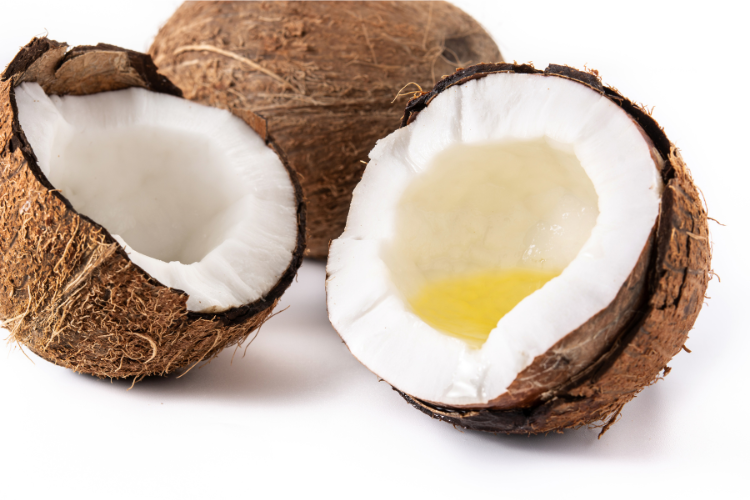
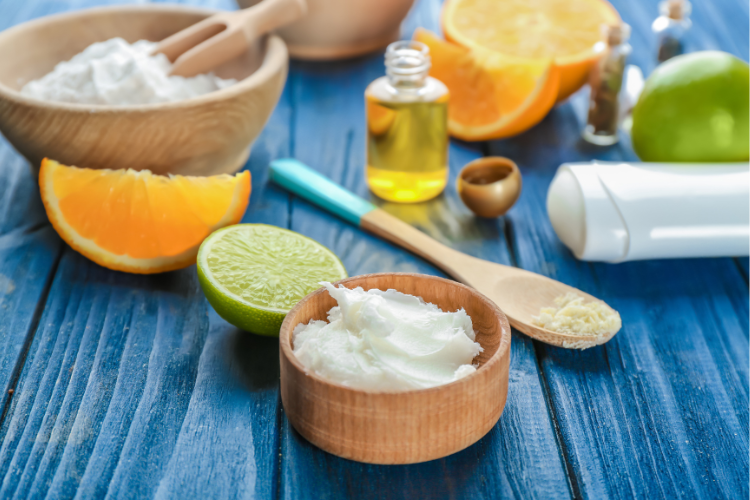

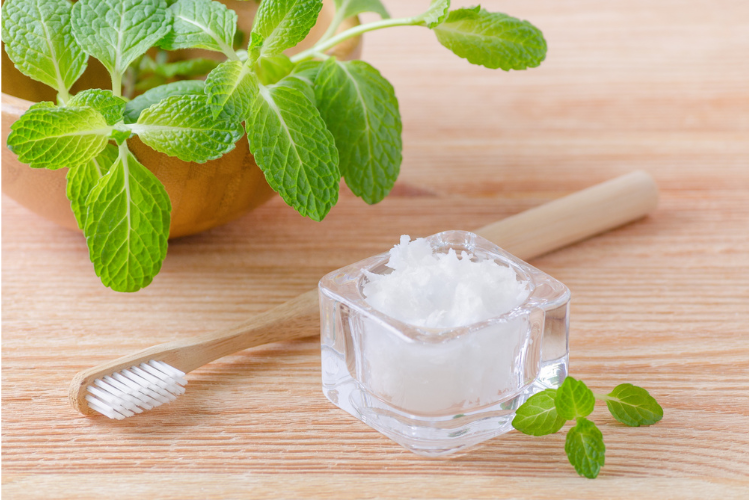

 Indonesia
Indonesia
